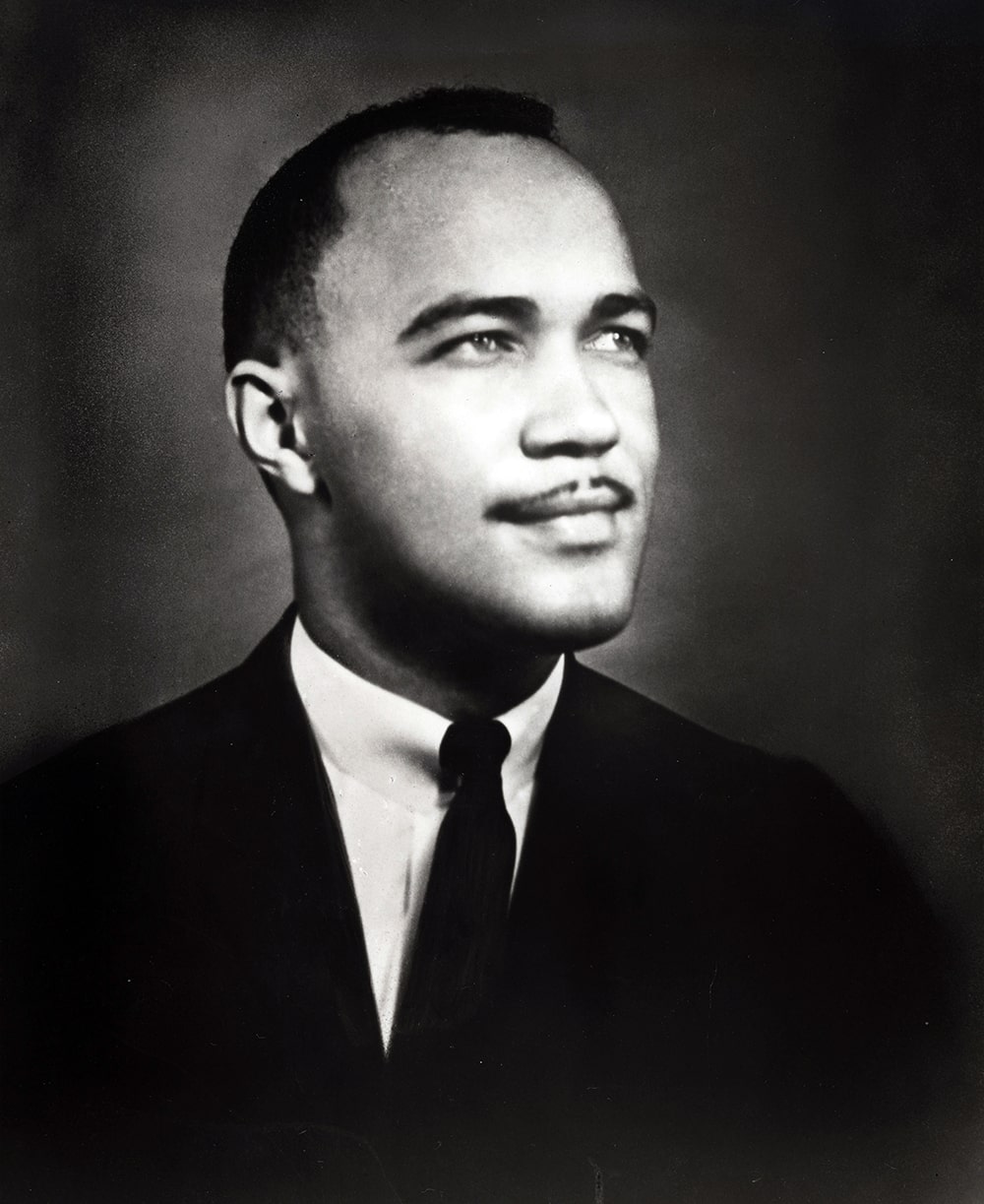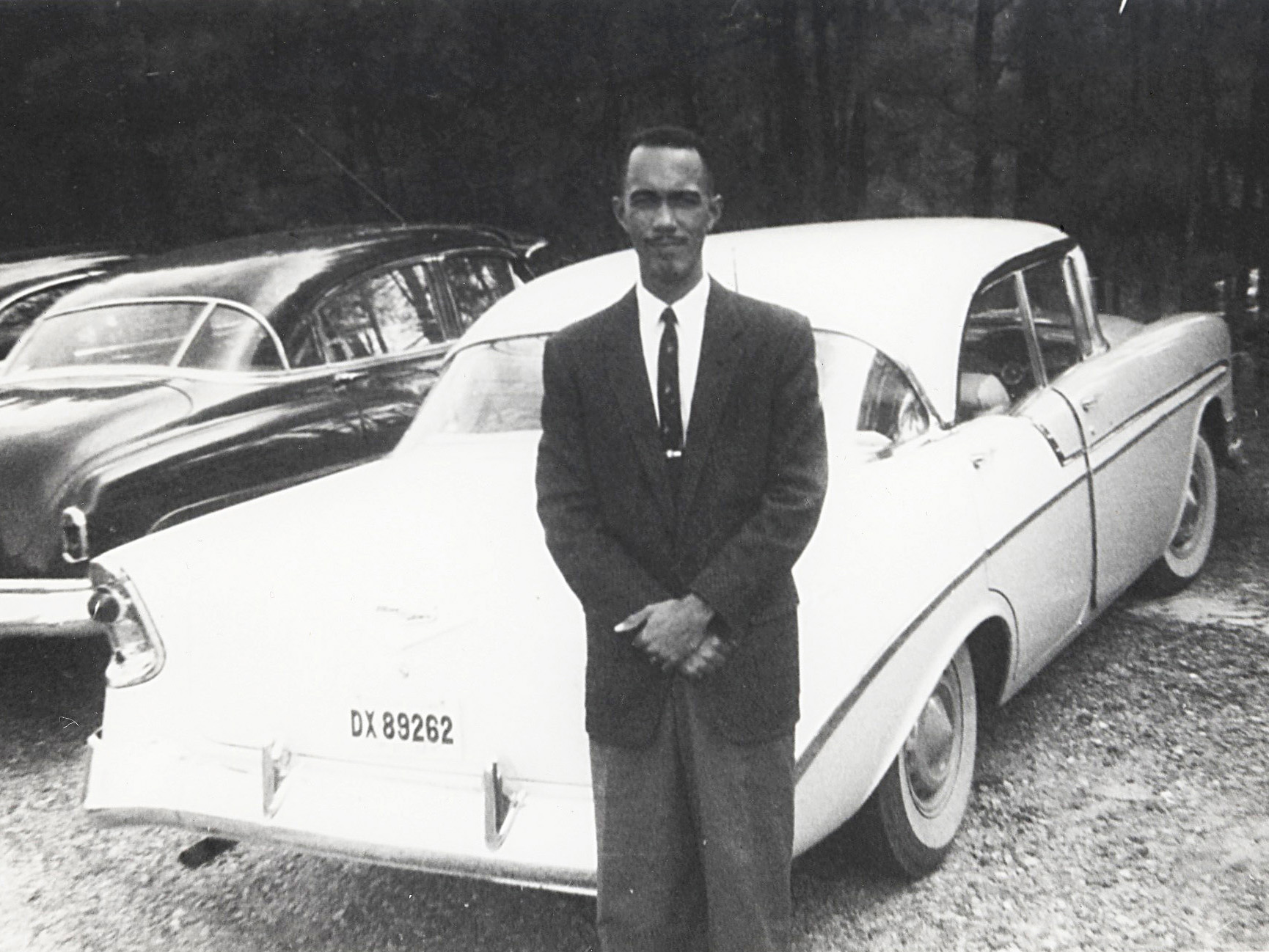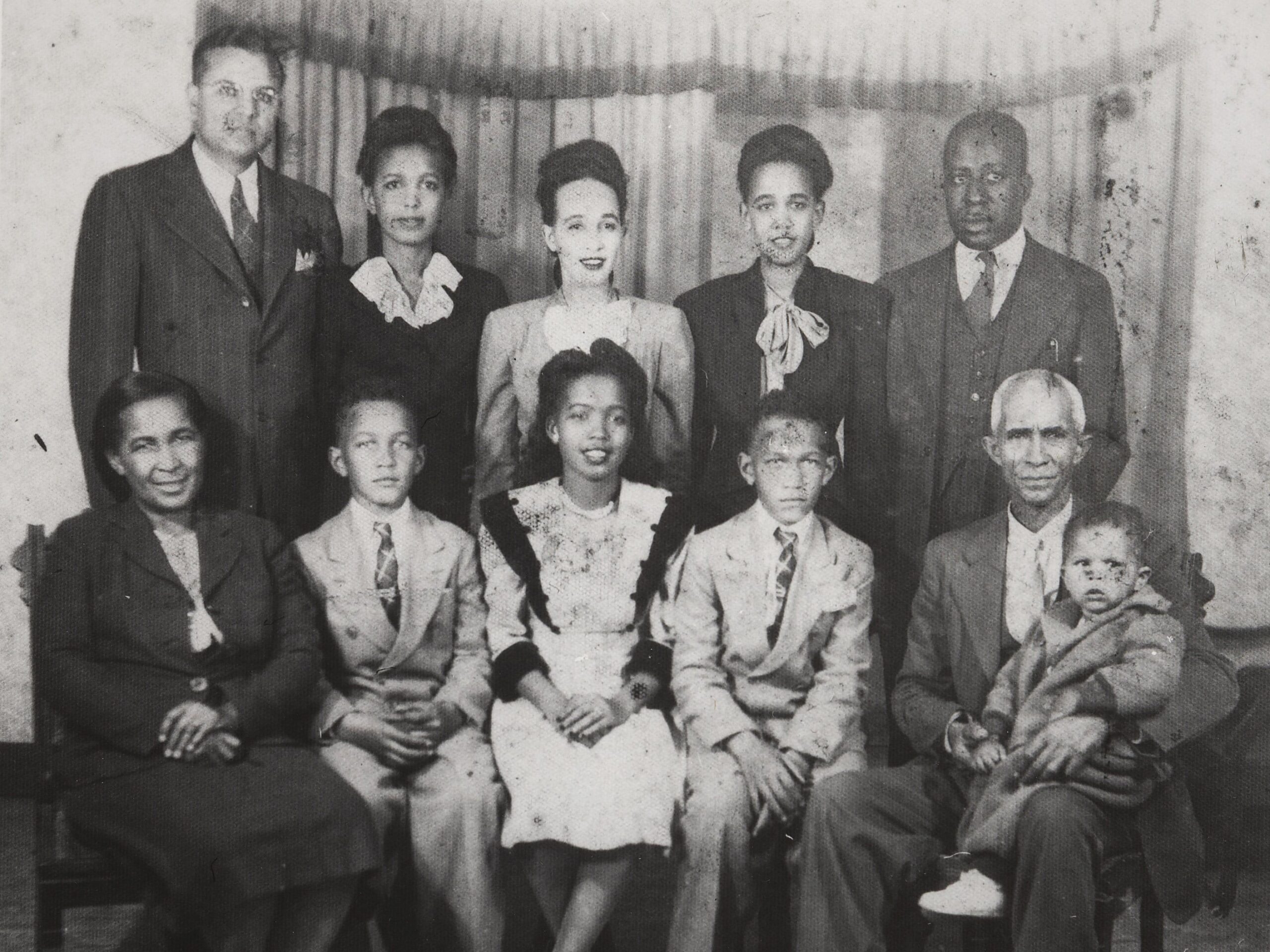An Accomplished Engineer, Ervin Perry Made History as UT’s First Black Faculty Member
Along with the Precursors, who were the first Black undergraduate students to enroll at UT Austin in 1956, Ervin Perry — who, in 1964, became the first Black faculty member at UT, a professor of civil engineering — helped pave the way for continued desegregation across the university and showed the importance of having Black professors at UT. He was also one of a small handful of Black graduate students at his time of enrollment and the first Black engineering Ph.D. student at UT.
Along with the Precursors, who were the first Black undergraduate students to enroll at UT Austin in 1956, Ervin Perry — who, in 1964, became the first Black faculty member at UT, a professor of civil engineering — helped pave the way for continued desegregation across the university and showed the importance of having Black professors at UT. He was also one of a small handful of Black graduate students at his time of enrollment and the first Black engineering Ph.D. student at UT.

Perry was born in 1935 in Coldspring, Texas. After graduating from Coldspring’s Lincoln High School in 1952, he attended Prairie View A&M, where he earned his bachelor’s degree in civil engineering in 1956. He and his twin brother, Mervin, then served as officers in the U.S. Army until 1958, at which time Perry went on to become an instructor at Southern University in Baton Rouge, Louisiana, for one year. He then entered graduate school at UT Austin in 1959 — only a few years after the university started admitting Black graduate students — but left for a brief stint to serve as an instructor at his alma mater, Prairie View A&M.
In 1960, after marrying his wife, Jean, who was a registered nurse and faculty member at Prairie View A&M, Perry returned to Austin and re-entered UT’s civil engineering graduate program, earning his master’s degree in 1961 and continuing on for his doctorate. His research areas as a graduate student focused on materials science and structural mechanics, and he coauthored several publications on energy absorption of lightweight aggregate concrete and foamed plastics.
After earning his Ph.D. in civil engineering from UT in 1964, Perry joined the faculty as an assistant professor — at age 28 — becoming the first Black faculty member at the university and the first at a predominantly White university in the South.
Having already studied and done research in the civil engineering department, coupled with his humble and pragmatic personality, there appeared to be a strong and smooth connection between Perry and Texas Engineering leadership at the time. In Prairie View A&M’s May 1964 monthly news report, then UT engineering Dean John J. McKetta Jr. is quoted describing him as an “outstanding academician and a terrific researcher.”
In 1977, following Perry’s death in 1970, the university named its new library after Perry and Carlos Castañeda (1896-1958), a UT alumnus who oversaw UT’s extensive Latin American archives and served as a professor of Latin American history.
At the 40th anniversary celebration of the Perry-Castañeda Library in 2017, Perry’s nephew, Gene Lock, spoke to UT’s Black Alumni Network about his uncle’s legacy and the significance of his appointment as a professor.
“When Ervin joined the UT academic faculty in 1964, American society was so different from — yet so similar to — today’s society. HOPE-HATRED-HESITATION. These three characterized the times in 1964. HOPE that the civil rights movement would change America’s social order. HATRED as manifested in the strong resistance to social change and the accompanying violence. HESITATION by political and civic leaders who were afraid to take a bold stand for true equal opportunity for all.”
Lock continued: “Against this backdrop, the University of Texas did not hesitate. UT made Dr. Perry a faculty member in 1964. This was truly a bold step by the university that had a history of segregation and exclusion — but it was made so much easier by the character and academic accomplishments of Ervin Perry.”


Among Perry’s many recognitions and accomplishments, he was a member of the American Society of Civil Engineers, the American Society for Engineering Education, the American Society for Testing and Materials, and the American Concrete Institute. He became the first Black member of the Travis Chapter of the Texas Society of Professional Engineers and was elected chapter director in 1966. From 1967-1968, Perry served as assistant to the president of Drexel Institute of Technology in Philadelphia as a fellow in the Ford Foundation Academic Administration Internship Program. When he returned to UT, he served as acting chairman of the civil engineering department in summer 1969 and was promoted to associate professor the same year.
Perry tragically died of cancer in 1970. While he was only 35 when he died, Perry’s legacy will live on forever, inspiring future generations of not only Texas Engineers but all engineers to live with purpose and follow their ambitions.
He was posthumously named Young Engineer of the Year by the Travis and Texas chapters of the National Society of Professional Engineers.
“He was a man of high character who gave an excellence of effort in everything he did. He was a devoted family man (husband, father, brother and uncle). Ervin grieved at the inequities that others suffered, while fully appreciating the burden of the spotlight on him for being the first of us on the faculty at the university,” Lock said at the PCL celebration. “In truth, Dr. Perry was smart — SUPER SMART — but he never felt the need to demonstrate this at the expense of others. His first love was his family. He drew strength from his unsung heroine, Jean Perry, his wife, and he got enduring satisfaction from his daughters, Patricia, Edna and Arvis.
“Our family is immensely proud that the library bears his name…we hope that having Ervin’s name on the library has been a small inspiration or source of pride for African American students and all students at UT thru the years. We hope that it continues to serve a small nail in the coffin of racial stereotypes that impair our ability as a nation to love and respect all humanity.”
